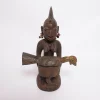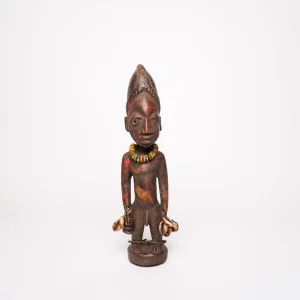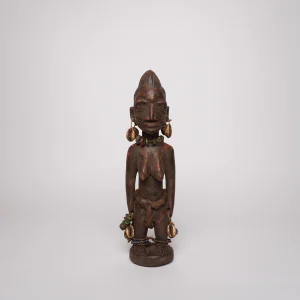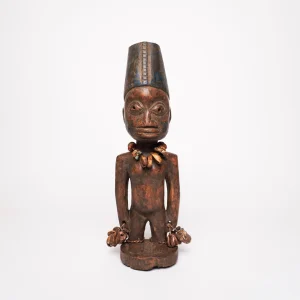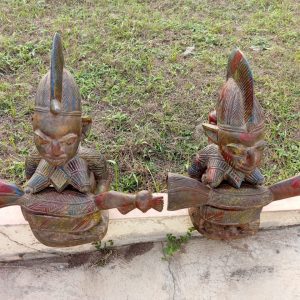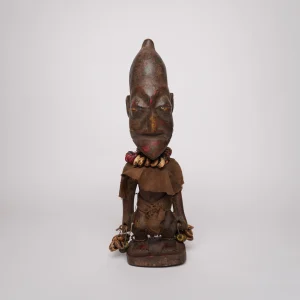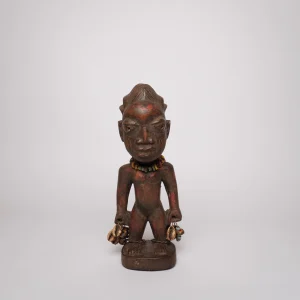Ibeji Statue – Sacred Twin Memorials of the Yoruba People An Ibeji statue, also known as Ere Ibeji, is a hand-carved wooden figure created by the Yoruba people of Nigeria and Benin to honor a deceased twin. These statues are deeply spiritual artifacts—not merely decorative items—and serve as physical vessels for the spirit of a lost twin, ensuring their continued presence within the family. Cultural Context and Purpose: Spiritual Role of Twins: In Yoruba belief, twins (called Ibeji) are considered spiritually powerful and bring both blessing and potential risk to a family. When one or both twins pass away, an Ibeji statue is commissioned to house the spirit of the departed child. This practice helps preserve harmony in the family and maintain a connection with the spiritual world. Design and Appearance: Ibeji statues typically feature a stylized human form that represents an idealized adult version of the deceased twin. These figures often display carefully detailed features, including elaborate hairstyles, symmetrical bodies, and accessories like cowrie shells, colorful beads, or carved ornaments symbolizing wealth, beauty, and status. The figures may be painted using natural pigments, such as indigo, to enhance their spiritual presence. Ritual Use and Daily Care: The Ibeji is treated as a living entity. Families—especially the mother and surviving twin, if applicable—regularly wash, clothe, adorn, and even symbolically feed the statue as part of daily rituals. This care is believed to bring protection, prosperity, and blessings to the household. Symbolic Meaning: Beyond memorialization, the Ibeji figure represents the Yoruba’s deep reverence for twins and their belief in the ongoing bond between the physical and spiritual realms. The statue ensures the twin’s spirit is honored and remains a part of the family’s life.
Related products
- USD: $286.54
- USD: $286.54
- USD: $286.54
- USD: $286.54
- USD: $286.54
- USD: $286.54
- USD: $286.54
- USD: $286.54



